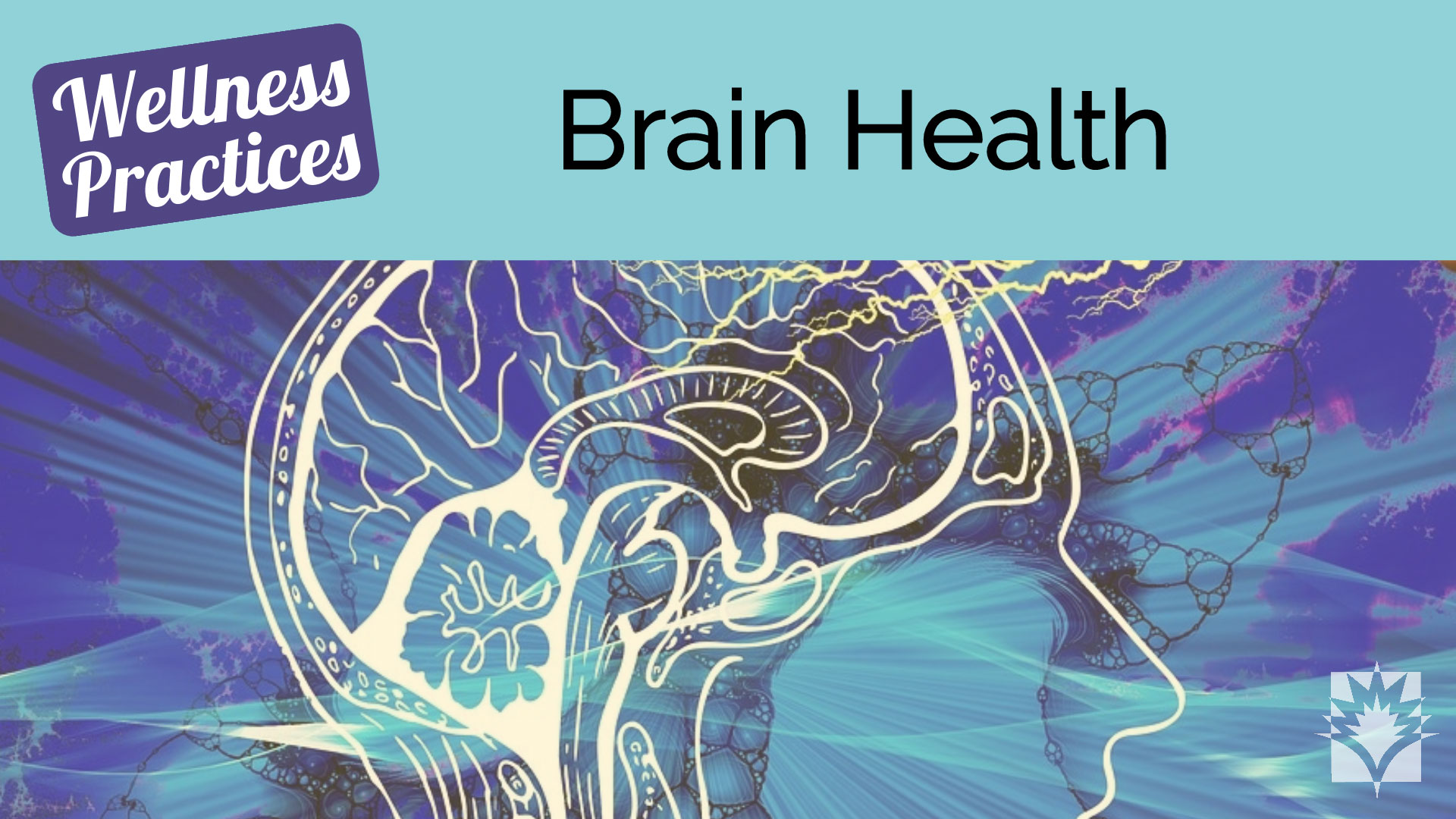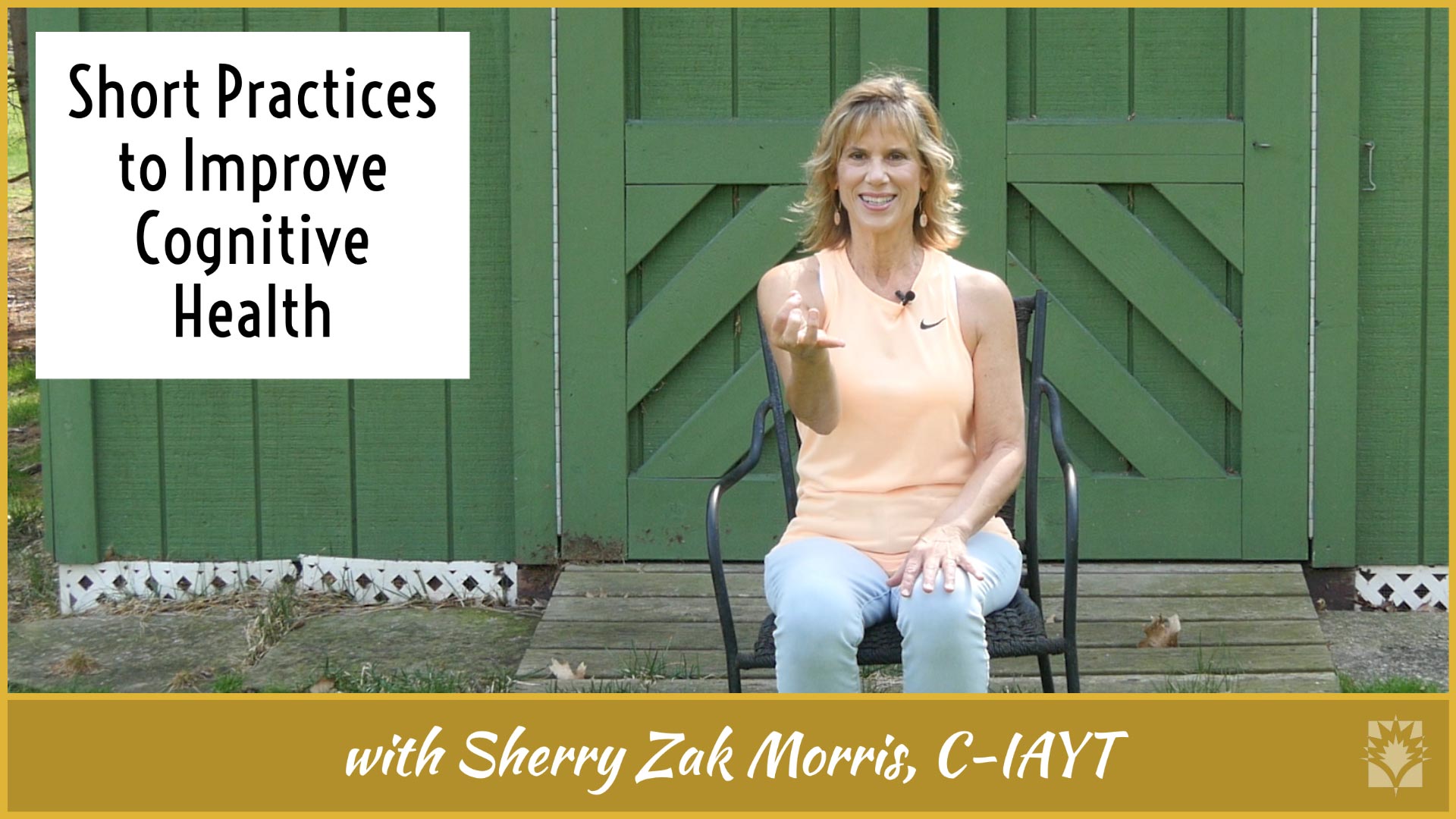
Yoga and Cognitive Enrichment
While research on preventing memory decline is relatively new, early studies imply that Yoga can have a positive impact. In most Yoga classes we learn new skills, we repeat patterns to exercise our brain, and our movements involve the use of more than one sense. In addition, making Yoga a part of our regular exercise routine will help us become more mindful in our everyday lives. All of these things may help to delay the onset of Alzheimer’s-like symptoms.
As we age, it’s normal for forgetfulness to become more frequent. However, when this forgetfulness interferes with normal daily activities, then it may be time to consult a doctor. Symptoms of various forms of dementia, with Alzheimer’s being the most common, may include:
-
- trouble performing routine daily activities
- challenges in managing finances
- feeling disoriented in place or time
- mood swings or erratic behavior
- trouble with writing or speech
YogaVista.TV is here to provide support! We have lots of creative ways for you to work on and improve your cognitive health. We are here to guide and assist you with our structured Wellness Practices.
How does Yoga Help?
Most studies indicate that a complete Yoga practice is an excellent and comprehensive “brain exercise.” When symptoms of cognitive impairment are present, the practice may be shorter (between 10 and 30 minutes). Meditation practices may also be helpful to focus concentration and reduce stress.
Recommended Practices
- Yoga Postures and Sequences
- Meditation — including Visualization and Concentration
- Pranayama (breathing practices)
- Chanting
Organizations such as the Alzheimer’s Research and Prevention Foundation (http://alzheimersprevention.org) have shown positive results in decades-long studies. Brief Yoga practices (10-30 minutes) and chanting the Kirtan Kriya (Sa Ta Na Ma) on a daily basis were used in various studies to delay memory loss in Alzheimer’s patients. Additionally, Chair Yoga Dance coordinates the brain and body using music, and Gentle Yoga movements with focused breath may also be beneficial. Finally, exercises that engage the brain where opposites of the body move at the same time or cross body movements are considered beneficial.
If you are the caregiver of someone struggling with cognitive decline, you may also benefit from joining your loved one in a daily Yoga practice.
The Benefits of Chanting the Kirtan Kriya for delaying Alzheimer’s with Denyse LeFever, C-IAYT
Denyse LeFever explains why this particular Chant with specific mudras (finger movements) helps with brain health. The Kirtan Kirya is sometimes called a singing exercise, as it involves singing the sounds “Saa Taa Naa Maa” along with repetitive finger movements. This non-religious practice can be adapted to several lengths, but practicing it for just 12 minutes a day has been shown to reduce stress levels and increase activity in areas of the brain that are critical to memory.
Check out the full Kirtan Kriya 12-minute chant with Denyse LeFever on YogaVista.TV.
Fly Me to the Moon – Chair Yoga Dance with Denyse LeFever
Ready to dance a bit down Memory Lane? This song from Frank Sinatra is sunny, upbeat and will get you kicking your feet and having a grand ole time! Join Yoga Vista Academy Chair Yoga Teacher, Denyse LeFever, in this all seated Chair Yoga Dance. And make sure to share it with someone who knows and remembers this song from back in the day!
For more Chair Yoga Dances, check out our Yoga Vista YouTube Channel.

Note: The videos in this collection are included in various YogaVista.TV subscription plans.
Wellness Practices for Cognitive Enrichment
We have made it easy for you to begin a Yoga program focused on helping you find ways to improve Cognitive Health. We have created these Wellness Practices for Cognitive Enrichment that offer targeted videos to educate and empower you to take control of your own health. As a result, they will help your brain stay active!
Related Video Series
(included in the Wellness Practices above)
Short Practices to Improve Cognitive Health with Sherry Zak Morris
These short practices will challenge both your mind and body. They may seem challenging at first, but the more often you practice them, the better your memory and brain processing will be. Even if you have some cognitive decline, or have had a stroke or brain injury, studies are finding that doing patterned movements reinforces our brain’s neural pathways, and can even make new ones if some are damaged!
Safety Guidelines and Precautions
- If new to exercise, keep your movements slow and gentle.
- Consider doing Chair Yoga practices, if your balance or gait is unstable.
- A short practice may be better than none.

Before starting these Wellness Practices:
Ensure you have a release from your healthcare practitioner to do exercise. Also ask your practitioner if you have any movement restrictions resulting from your medical conditions. Above all, be mindful of any movement that creates a sharp, knife-like pain or tingling sensation.
Related Resources & References
Alzheimer’s Research and Prevention Foundation – ARPF is dedicated to preventing Alzheimer’s Disease. They fund Integrative Medicine Research, provide Professional Educational Training, Outreach, and Memory Screening.
LoveYourBrain – Their mission is to improve the quality of life of people affected by traumatic brain injury through programs that build community and foster resilience.
Association for Rehabilitation of the Brain Injured – ARBI gives brain injury and stroke survivors a second chance at life by providing intensive community-based rehabilitation and family support in a nurturing environment.
Article on the Journal of Alzheimer’s Disease
Article on the NeuroscienceNews.com
Journal Study on Spiritual Fitness: A New Dimension in Alzheimer’s Disease Prevention with Supplementary Material about practicing the Kirtan Kriya.
CREDITS: Author, Denyse LeFever, Certified Yoga Therapist
Editor, Sherry Zak Morris, Certified Yoga Therapist
Editor, Maria Perez, Certified Yoga & Group Fitness Instructor

